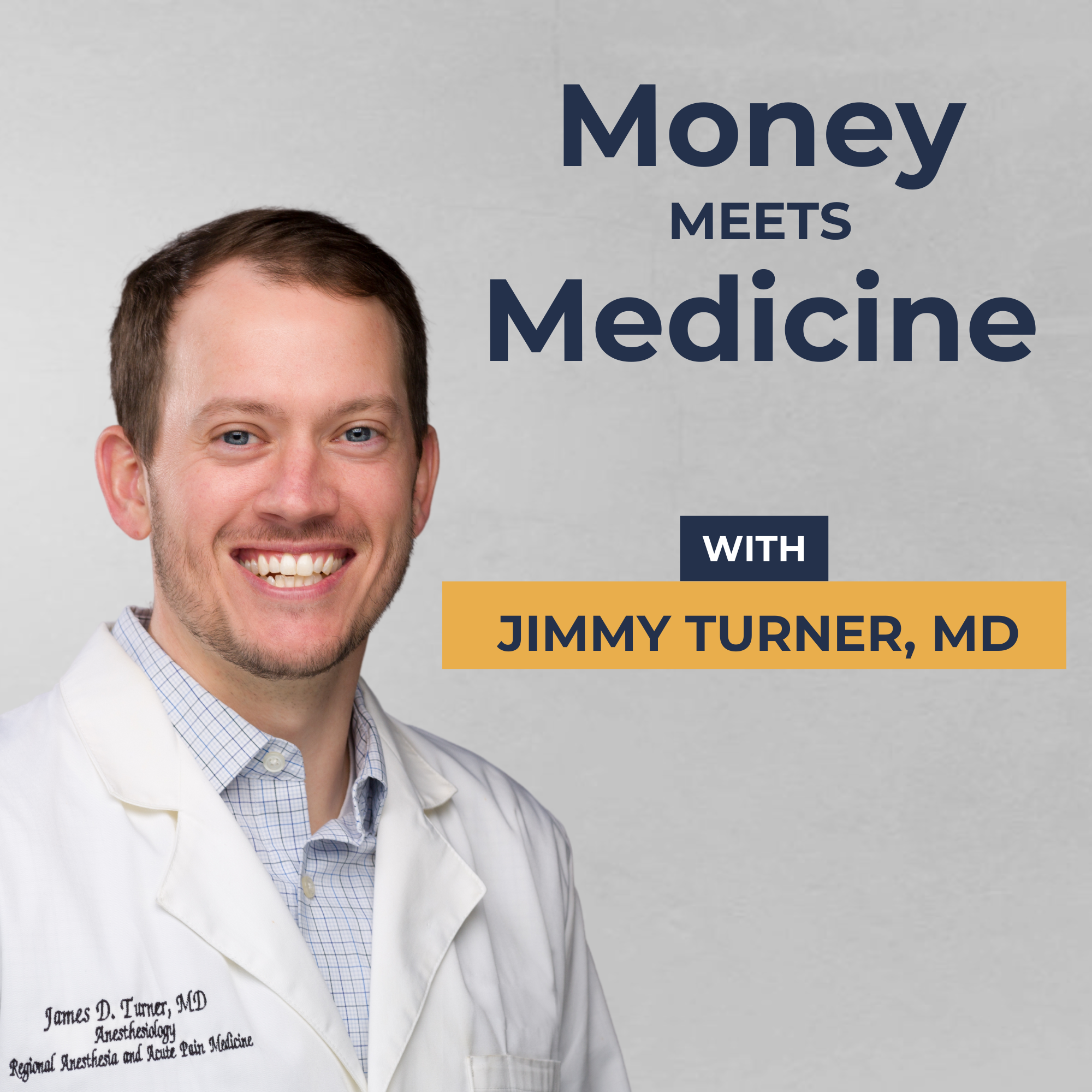Podcasts
Money Meets Medicine
We talk about the personal finance topics you wish you had learned in medical school.
New episodes every Wednesday
Meet Your Host
With the combined knowledge and experience of a practicing physician and financial advisor, this podcast aims to be the best personal finance podcast for doctors.

James D. Turner, MD
Practicing physician and self-described personal finance nerd.
What people are saying
“The content of the podcast is incredible and compliments any doctor’s financial education. Ryan and Jimmy have cohesive chemistry where they delve into behavioral finance in a succinct and fun way, and this has translated to better financial decisions in my life.”
NYU Neuro
“I’m a long time listener and follower of WCI, but this podcast has quickly moved to #1 (still listen/follow WCI). I love the friendly banter between Jimmy and Ryan… keep up the great work guys!”
amandarx02
“MMM is one of my favorite physician finance podcasts. Many shows fixate on the nuts and bolts of how to perform certain financial/investing maneuvers, but MMM focused on the behavioral aspects of personal finance… I highly recommend this podcast to my colleagues.”
Catdaddy M.D.
Never miss another episode
© 2021 The Physician Philosopher | Website by The Good Alliance

